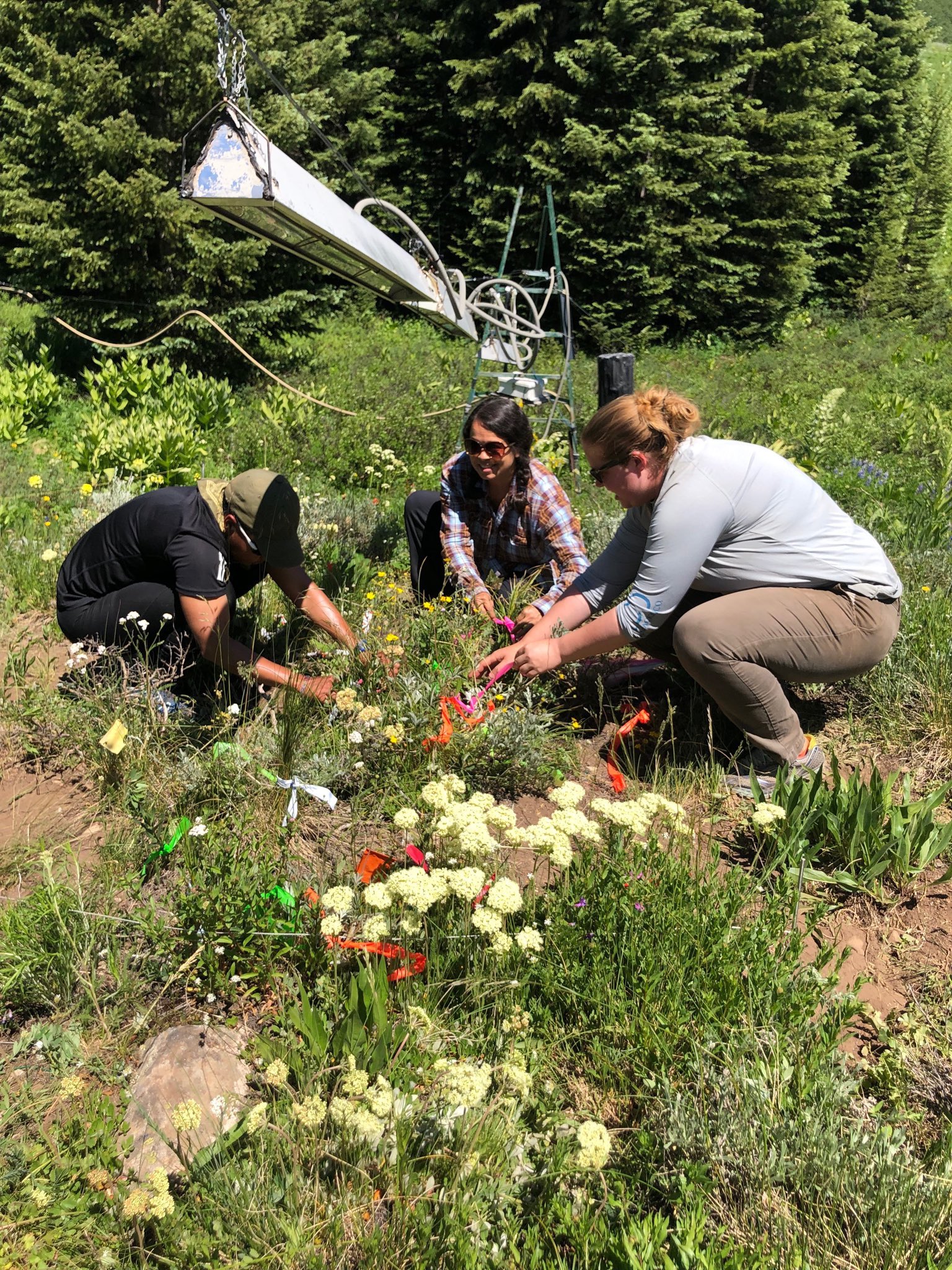
Research
We are interested in drivers of microbial taxonomic and functional distributions in plants and soils, as well as the influence of microbial communities on ecosystem-level processing of carbon and nutrients.
MAPS: Microbial Atlas of Predicted Species Niches
Species distribution models are powerful tools for predicting the distributions of “macro”organisms but have scarcely been applied to microbial taxa. MAPS is the first database to collect SDMs for microbial taxa at the global scale. In addition, we recently received a macrosystems grant to connect above- and belowground biodiversity across scales.
Global Change: Utilizing Long-term Manipulations & Environmental Gradients
Global change is affecting microbial composition and function, but observing these effects in real time will preclude advancement of global change ecology. Instead, our lab observes global change in real time by utilizing long-term warming experiments, snowmelt manipulations, and elevational gradients, which are a space-for-time substitution for climate change. This work is centered at The Rocky Mountain Biological Laboratory (RMBL) in Crested Butte, CO. We have characterized plant-associated microbial communities and are currently researching ecosystem-level effects of shifts in microbial composition through field-based reciprocal transplants.
Invasions as Natural Experiments of Mutualism Decoupling
Invasive plants can produce toxic chemicals that kill mycorrhizal fungi. With funding from NSF Integrative Biology we are investigating mutualism disruption between understory spring emphemiral plants and arbuscular mycorrhizal fungi scaling from plant physiology, vital rates, population dynamics, community composition and ecosystem function.
